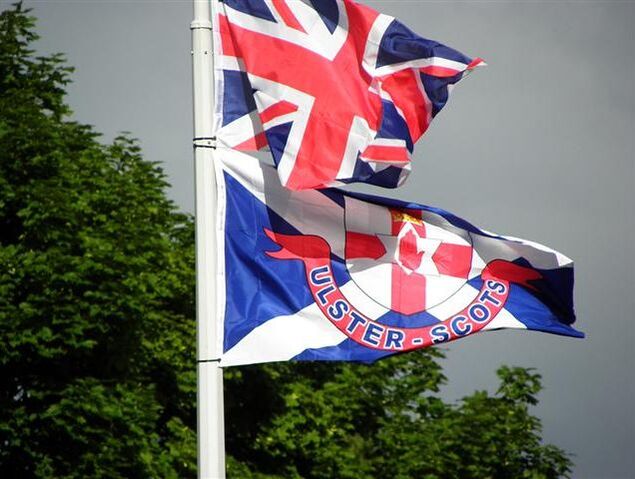|
|
|
In January 2020, an agreement was struck between Northern Ireland’s political parties that restored the power-sharing government in Belfast, ending a three-year suspension of the Assembly. This agreement requires the Assembly to ‘place a legal duty on the Department of Education to encourage and facilitate the use of Ulster Scots in the education system’. In light of the problematic potential of Ulster Scots education, serious consideration of Northern Ireland’s current trajectory into ethno-cultural education is as necessary as ever.
The recognition and incorporation of ethnicity into the education system has often been considered a productive, even necessary step in the production of a peaceful society. Teaching children about 'their own' culture is frequently conceptualised as an unquestionably positive, providing ‘ethnic groups’ with ‘the knowledge and means to defend their interests as well as revitalizing and strengthening their own cultures’[i]. In relation to Northern Ireland, some have argued that teaching children to ‘explore their own identities’ is an important prerequisite ‘to exploring that of the other community’[ii], and so a crucial step toward a more integrated society. In my Identities article, 'Ethnicizing Ulster’s Protestants?: Ulster-Scots education in Northern Ireland', I call this logic into question. Defences of ethnic education in postconflict societies tend to rely on rather problematic notions of ethnicity, treating ethnic 'groups' as social facts rather than socially constructed concepts. On the contrary, such identities are the products of peoplehood-building processes. In the Northern Irish context, two 'cultural identities' have become the politically sanctioned ethnicities marked out for incorporation into the discourse of identity work: Irish, a national identity with its roots in nineteenth-century nationalist revival; and Ulster Scots, a ethno-linguistic movement that developed in the latter years of the Troubles. Since Ulster Scots was first recognised in the Belfast/Good Friday Agreement in 1998, it has made considerable inroads into Northern Ireland’s civil society, including the education system.
Ulster Scots is often perceived as ‘the cultural wing of loyalism or the ethnic branch of unionism’[iii]. However, drawing on in-depth textual analysis of Ulster Scots teaching materials and interviews with teachers, educationalists and political elites, I contended that Ulster Scots ethnic education in reality took two distinct forms. The first, which I termed the Protestant-community approach, conceptualised Ulster Scots as corresponding to a potentially more socially acceptable term for older identity categories such as Loyalist, Unionist, Protestant or British. The second, the ethno-cultural approach, conceptualised Ulster Scots as an entity discrete from these 'Protestant community' identifiers, an ethnicity separable from Unionist-Loyalist ideologies. In this way, Ulster Scots actually represents a break of sorts with traditional unionist-loyalist ideas rather than an unproblematic reinforcement of them.
Hence, ‘Ulster Scots’ ranges from augmentation to replacement of Unionist-Loyalist conceptions of identity, positing a deeper, more constitutive narrative of ethnic peoplehood. Both Protestant-community and ethno-cultural approaches hold considerable potential to expand the already worryingly adhesive senses of community difference in Northern Ireland. Where unionism is contingent upon the continuation of the union, Britishness upon the perpetuation of senses of national identity, and Protestantism upon the maintenance of religiosity, Ulster Scots is conceptualised as innate and genealogical, and so more profound and permanent. In doing so, Ulster Scots transforms the notional difference between Protestant and Catholic 'communities' in Northern Ireland from a matter of beliefs and cultural practice to the more profound dimension of ancestry and descent.[iv] [i] Bush, K. D. & Saltarelli, D. 2000. The two faces of education in ethnic conflict: towards a peacebuilding education for children. Research report. Unicef Innocenti Research Centre, pp. 18. [ii] Kilpatrick, R. & Leitch, R. 2004. Teachers' and Pupils' Educational Experiences and School‐Based Responses to the Conflict in Northern Ireland. Journal of Social Issues, 60(3): 563-586, pp. 582. [iii] Craith, M. N. 2003. Culture and identity politics in Northern Ireland. Springer, pp. 83. [iv] For more on this argument, see my book: Gardner, P. 2020. Ethnic Dignity and the Ulster-Scots Movement in Northern Ireland. Palgrave Macmillan.
Blog post by Peter Robert Gardner, University of York, UK
Read the full article: Gardner, Peter Robert. Ethnicizing Ulster’s Protestants?: Ulster-Scots education in Northern Ireland. Identities: Global Studies in Culture and Power. DOI: 10.1080/1070289X.2016.1244512
0 Comments
Your comment will be posted after it is approved.
Leave a Reply. |
|
Explore Identities at tandfonline.com/GIDE |
|
The views and opinions expressed on The Identities Blog are solely those of the original blog post authors, and not of the journal, Taylor & Francis Group or the University of Glasgow.

